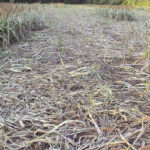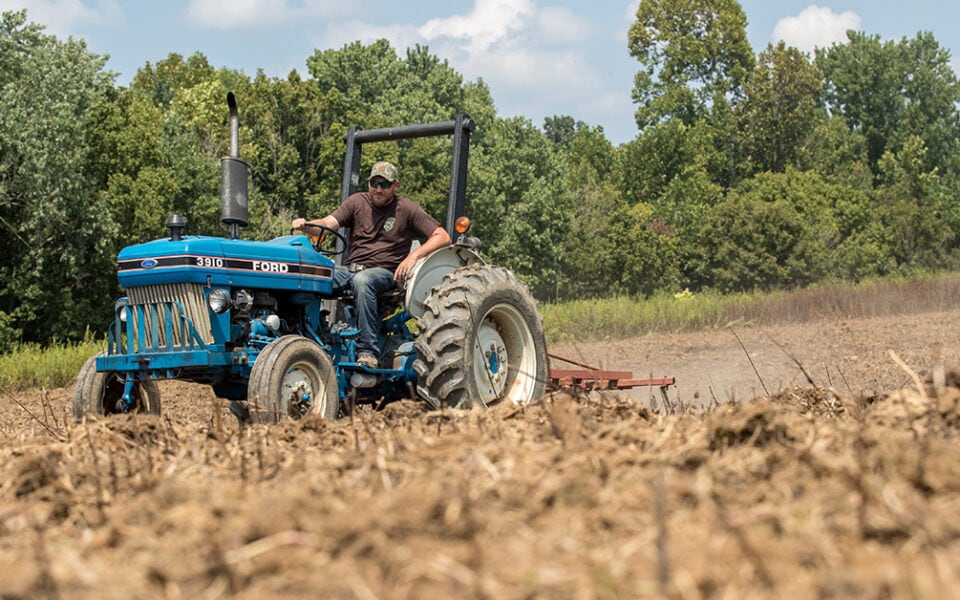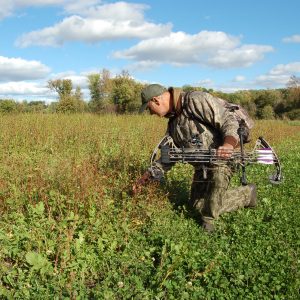One of the most important factors when planting and maintaining a successful food plot is the soil. To have a successful crop you must first start with the dirt. There are several techniques to improve your soil but today we will cover two, sometimes overlooked tips for improving food plot soil quality. These tips can make a big difference in the quality of you soil but we always suggest getting a soil test before you begin planting.
Food Plot Soil Compaction
Soil compaction often results in a densely compacted layer of soil that lies between the topsoil and subsoil. This compacted layer is called “the hardpan.” The depth of hardpans vary with soil type and farming strategies but are often 4 to 12 inches below the surface and are caused by the weight and pressure of tractors (and other equipment) on the soil and repeated disking/tillage over several years that loosened top soil. This causes the finest particles of soil (clay) to migrate downward, accumulating and binding, creating a very dense layer. You may need to use a chisel plow or subsoiler to break-up the hardpan or compacted soil to lift and break-up the hardpan. This increases aeration and water penetration and distributes nutrients more evenly throughout the soil column. Certain crops like Deer Radish will also help to do this – often referred to as a “tillage radish” because of their ability to break up hardpans and distribute nutrients.
Composting Organic Matter in Food Plots
 When you need to break down lots of organic matter in a food plot (for example when creating a new food plot or when you’ve grown a crop that has a lot of organic matter like corn), to speed up the process it is a good idea to add extra nitrogen and a product like DeltAg’s Soil Solution. If you were to grow a crop in the untreated soil without doing this, your crop will be robbed of nitrogen because the soil gives precedence to composting all of the plant residue. Typically, about 30 units (or pounds) of nitrogen per acre will accelerate the composting process and the Soil Solution will speed up the microbial activity.
When you need to break down lots of organic matter in a food plot (for example when creating a new food plot or when you’ve grown a crop that has a lot of organic matter like corn), to speed up the process it is a good idea to add extra nitrogen and a product like DeltAg’s Soil Solution. If you were to grow a crop in the untreated soil without doing this, your crop will be robbed of nitrogen because the soil gives precedence to composting all of the plant residue. Typically, about 30 units (or pounds) of nitrogen per acre will accelerate the composting process and the Soil Solution will speed up the microbial activity.
Join our weekly newsletter or subscribe to GameKeepers Magazine.
Your source for information, equipment, know-how, deals and discounts to help you get the most from every hard-earned moment in the field.






